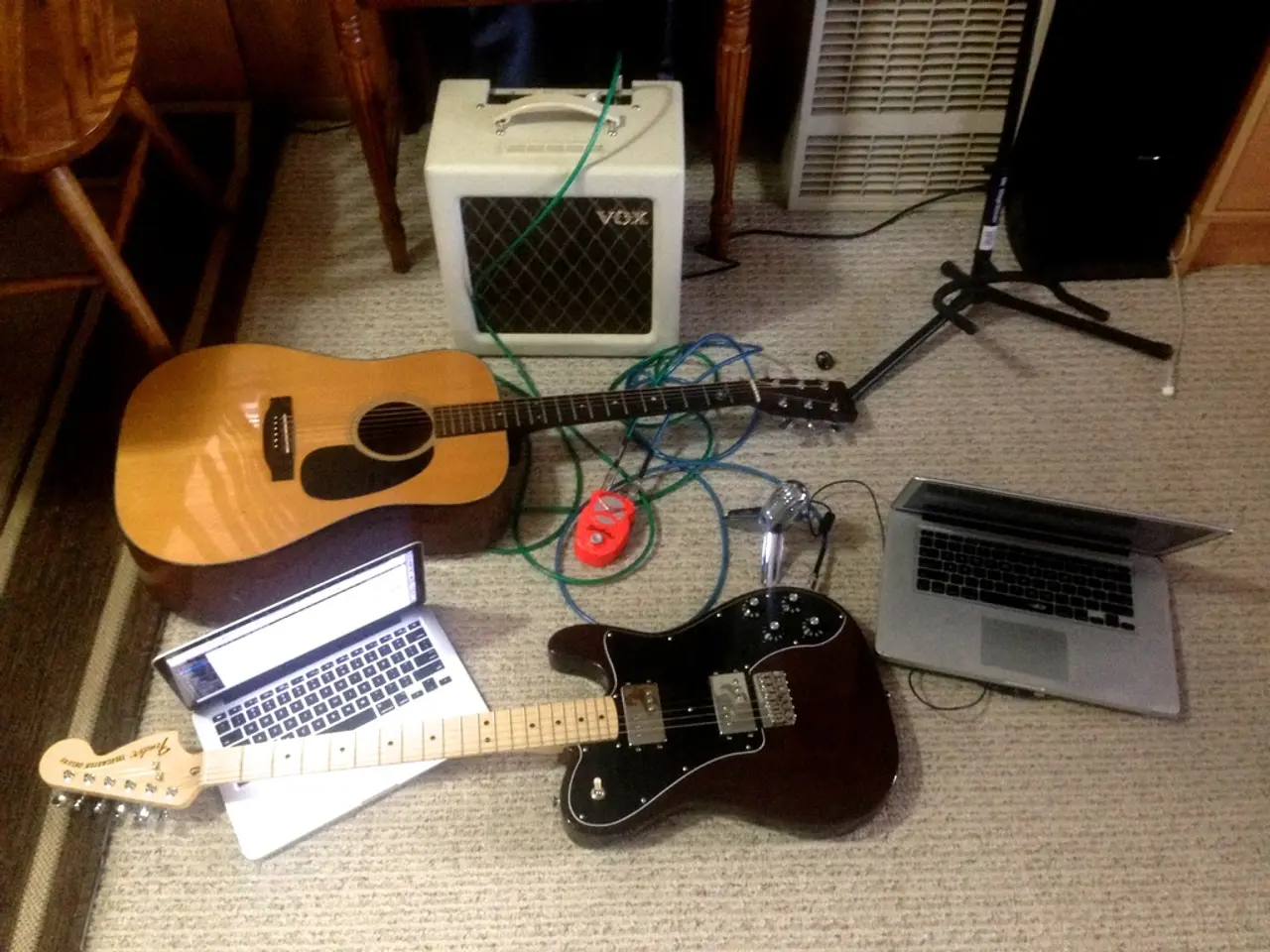Essential Topics for Vocational Excellence in Audio Engineering
================================================================================
With the rapid expansion of digital media and continuous technological advancements, employment opportunities in sound engineering are on the rise. This article aims to provide an overview of the academic preparation, key areas, and trends in the sound engineering industry for those considering a career in this field.
Preparing for a Career in Sound Engineering
Universities like UJ offer degrees in visual and audio arts, with a focus on courses covering sound design, production techniques, and studio operations. It's essential to explore these programs to gain a solid foundation in sound engineering principles. Internships and lab work also play a vital role in academic preparation, offering hands-on experience that complements theoretical knowledge.
Building a Career in Sound Engineering
A career as a sound engineer involves a combination of education and practical experience. Entry-level positions and internships can provide opportunities for growth, allowing individuals to develop their skills and build a portfolio.
Key Areas and Trends in Sound Engineering
The entertainment industry offers various opportunities for sound engineers, with key areas including film and television, music production, and live events. In recent years, sound in interactive environments, such as video games and virtual reality, has gained prominence, requiring dynamic and responsive audio that responds to user actions.
AI and machine learning are expected to further automate and enhance tasks such as sound mixing and mastering, leading to more efficient workflows. Another trend shaping the sound engineering landscape is 3D audio technology, which allows for immersive experiences with a fully spherical sound field.
Essential College Courses for Sound Engineering
Recommended college courses for a career in sound engineering typically cover foundational theory and practical skills in audio technology, acoustics, recording, production, and electronics. Key courses include:
- Introduction to Sound and Audio Engineering — foundational concepts of sound, signal flow, audio terminology, and equipment use.
- Audio Recording Techniques — recording studio operations, microphone selection and placement, signal routing, mixing techniques, and session procedures.
- Acoustics — study of sound wave behavior, sound environment design, and studio acoustics for quality recording and playback systems.
- Digital Audio and Signal Processing — digital systems, computer-based audio processing, MIDI, software plug-ins, and digital recording technology.
- Audio Electronics and Circuits — understanding and working with analog and digital audio electronics, including designing and testing circuits used in audio gear.
- Microphone Technology and Application — advanced courses on different microphone types, techniques, and applications for various recording contexts.
- Studio Construction and Maintenance — the design, setup, and upkeep of recording studio environments and equipment.
In addition to these courses, internships, hands-on lab work, capstone projects, and career development courses can help prepare students for industry roles.
Notable programs such as those at Purdue University, Belmont University, Berklee College of Music, and Northwestern University offer these courses within their sound engineering or audio engineering technology curricula, blending theory with extensive practical training.
Immersion Audio Technology and Live Sound Production
Immersion audio technology is a crucial trend, shaping the way we experience audio in fields like VR and AR in gaming and films. On the other hand, live sound and event production focuses on live sound reinforcement, involving tasks such as managing sound boards, setting up stage equipment, and conducting sound checks.
To become a sound engineer, you typically need a degree in audio engineering or a related field, with certifications in specific recording or mixing software potentially enhancing employability.
In terms of salary, audio engineers can expect variable earnings based on factors like location, experience, and industry sector, with mid-level professionals earning annual salaries ranging from $40,000 to $60,000.
For a comprehensive career preparation in sound engineering, students are encouraged to pursue combinations of these courses depending on their program, with strong emphasis on both technical and production skills in real-world settings.
- A solid foundation in sound engineering principles can be gained through university programs like UJ, offering degrees in visual and audio arts with courses in sound design, production techniques, and studio operations.
- Gaining hands-on experience through internships and lab work is crucial for academic preparation in sound engineering.
- The entertainment industry offers various opportunities for sound engineers, such as film and television, music production, live events, and now, interactive environments like video games and virtual reality.
- AI and machine learning are expected to impact sound engineering, automating tasks such as sound mixing and mastering, leading to more efficient workflows.
- 3D audio technology, which allows for immersive experiences with a fully spherical sound field, is another trend shaping the sound engineering landscape.
- Essential college courses for a career in sound engineering include courses in audio technology, acoustics, recording, production, and electronics, with key courses like Introduction to Sound and Audio Engineering, Audio Recording Techniques, and Digital Audio and Signal Processing.
- To work as a sound engineer, one typically needs a degree in audio engineering or a related field, and certifications in specific recording or mixing software can potentially enhance employability in the industry.




